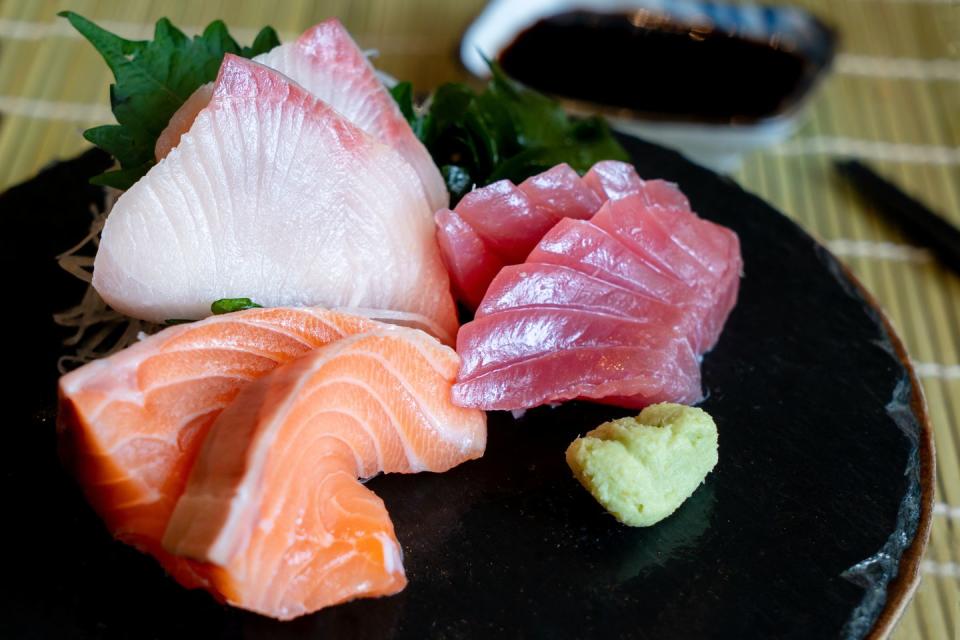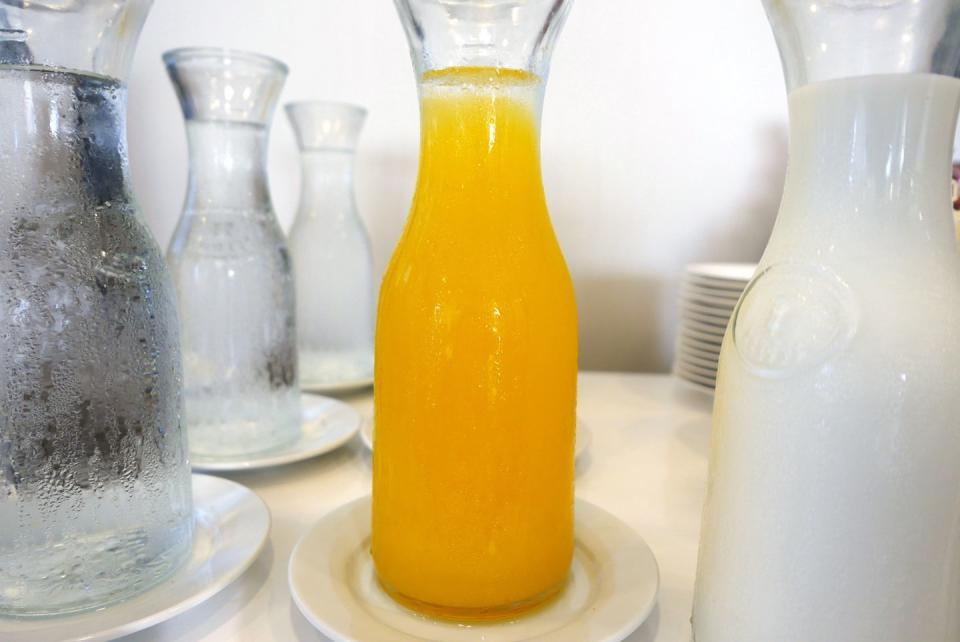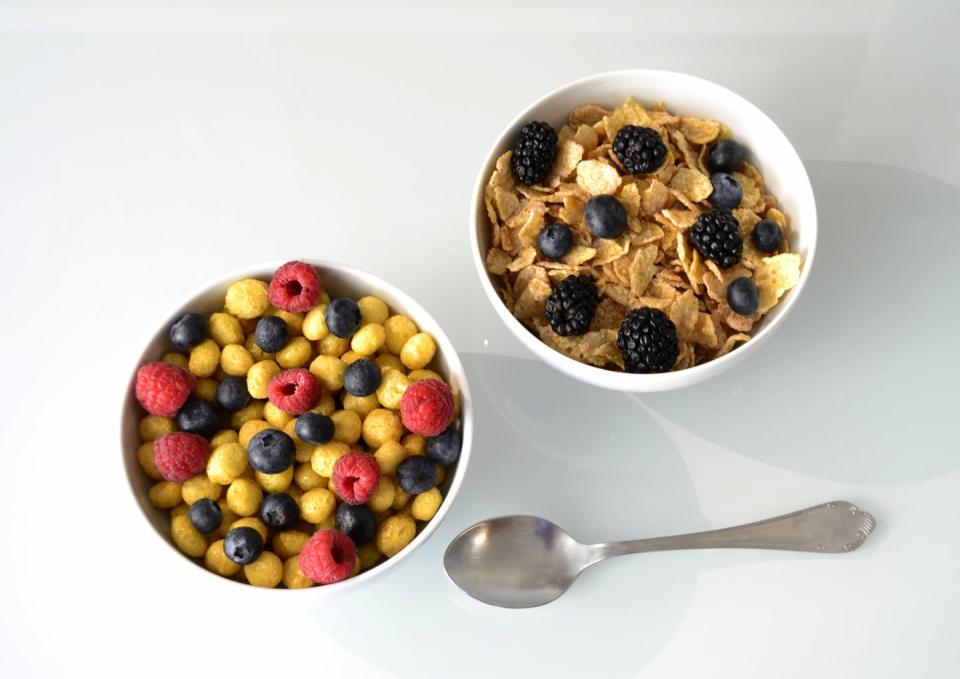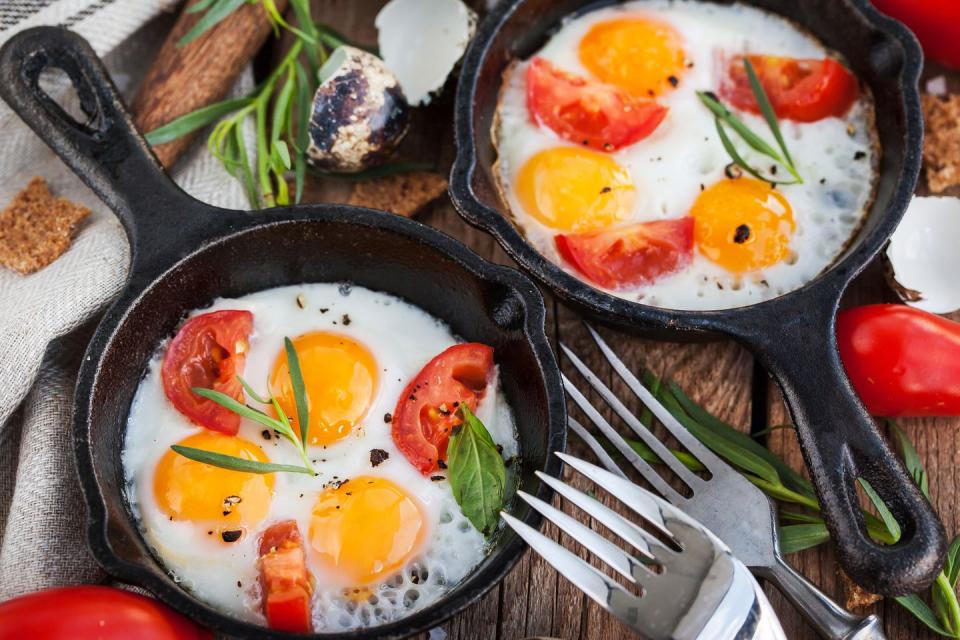7 Vitamin D-Rich Foods That Will Boost Your Bone and Muscle Health

Called the sunshine vitamin for good reason, vitamin D is best sourced from the sun. Just five to 30 minutes a day during the spring and summer months is all your body needs. (If you’re heading out for a ride later in the day, be sure to cover up with sunscreen.)
But you can also get vitamin D, which helps support bone, muscle, and immune health, from your diet when sunlight isn’t a viable option (think: during the bleak, winter months), says Lisa Bruno, R.D., a dietitian for Work It Out. Aim for 600 IU per day, and 1,000 IU if blood tests confirmed you have low levels. Here are seven vitamin D-rich foods you can add to your diet when you’re not able to soak it up in the sun.
[Build a killer midsection in the kitchen for powerful, effortless miles on the road with Eat for Abs!]
1. Fatty Fish

Fatty fish such as salmon, herring, and tuna are not only good for your heart and brain, thanks to the omega-3 fatty acids, but they also provide plenty of vitamin D. The fat in the fish also helps your body absorb vitamin D. A bonus? Fish is an excellent source of lean protein to help your muscles recover.
2. Fortified Milk and Orange Juice

Vitamin D is often added to milk and orange juice, but its content is significantly less than fatty fish. A cup of fortified orange juice has about 17 percent of your daily needs, while fortified milk has 16 percent. Plus, calcium is the go-to bone health nutrient, but it needs vitamin D to be absorbed, says Bruno, so consuming both in one drink does the trick.
3. Fortified Cereals

Many cereals are fortified with vitamin D. Bruno suggests pairing one with fortified milk and orange juice for a balanced breakfast that’s high in vitamin D. For example, a 1/2–cup serving of Yogurt Burst Cheerios with a 1/2 cup of fortified milk and eight ounces of fortified orange juice will give you about 200 IU. (Here are our favorite healthy and tasty cereals).
4. Eggs

Not only are eggs an excellent source of lean protein, they also offer 7 percent of your daily vitamin D needs. The 2015 dietary guidelines lifted the 300 mg limit on dietary cholesterol (eggs have 200 mg), which means it’s safe for most healthy people to have a few eggs per day.
“People demonize the egg, but you can have one or two a day with no issues,” says Bruno. “And eat the whole egg. The vitamin D is in the yolk, and the fat that your body needs to absorb it is also in the yolk.”
5. Mushrooms

Some mushrooms, like Dole Portobello, are grown under UV light that makes it a good source of vitamin D, says Bruno. In fact, a three-ounce serving has a whopping 400 IU. Mushrooms with vitamin D are a good option for people who follow vegetarian or vegan diets and don’t eat eggs, fish, or dairy. When looking for this variety, Bruno suggests asking for vitamin D-enhanced brown and white mushrooms.
6. Cod Liver Oil

This fish oil takes the cake when it comes to its vitamin D content, with 1,360 IU per tablespoon. If you’d prefer to avoid slurping a spoonful of oil, which can be pungent, try a pill for the same benefit.
7. Supplement

Okay, like fish oil, this isn’t a food, per se. But even if you do eat a varied diet, it’s still possible to become deficient in vitamin D, especially during the winter months. If you choose to pop a pill, go with 600 to 1,000 IU of D3. Often, supplements will also contain calcium to help increase absorption of vitamin D. Bruno points out that new research has found that D2 is just as effective as D3, and is vegetarian- and vegan-friendly.
('You Might Also Like',)

